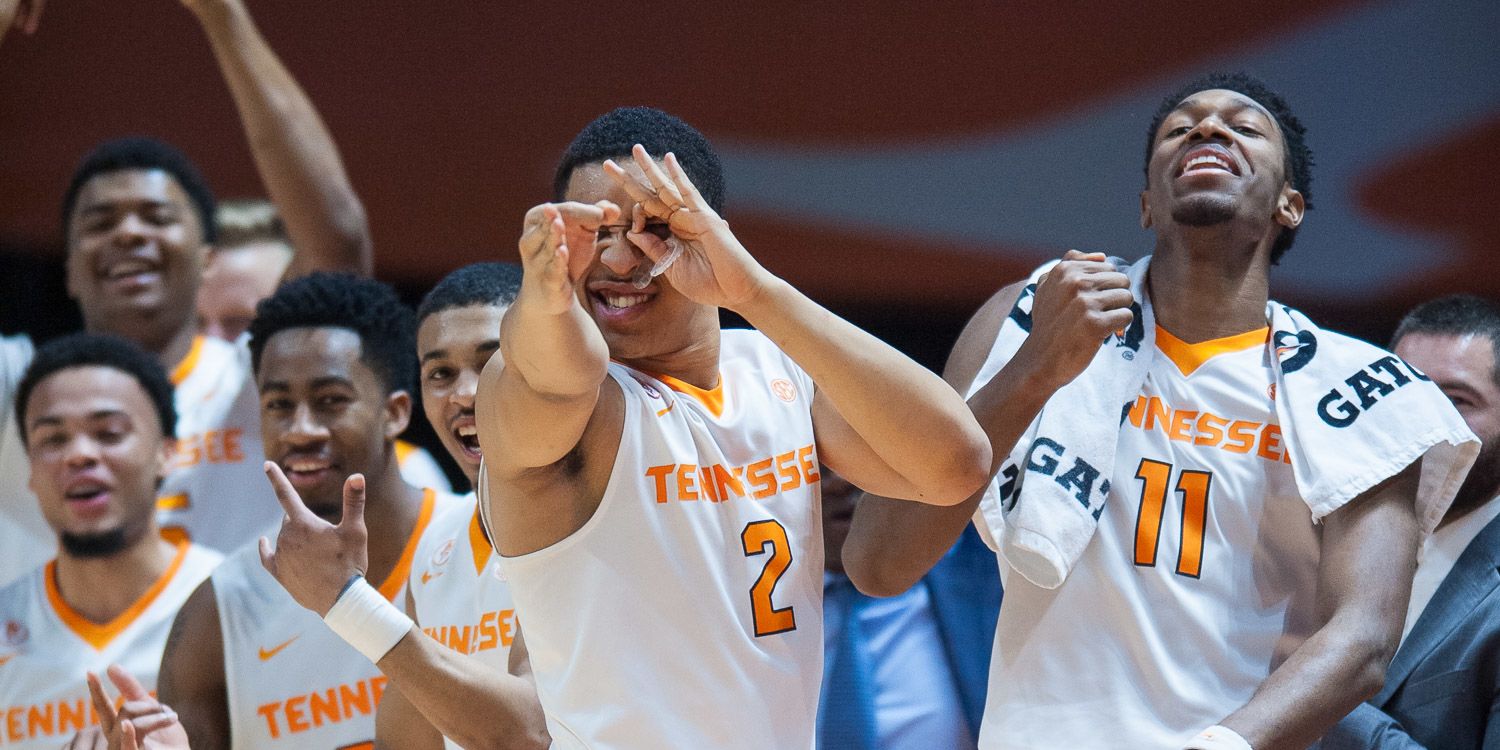Earlier this week Dylan took a look at how Tennessee might adapt its offensive philosophy next season. It’s a great question: should the Vols continue to rely on their physicality and inside presence, or look to space the floor even more with better three-point shooting?
The 2017-18 Vols were not only the program’s second-highest-rated team of the KenPom era (still trailing Cuonzo Martin’s final squad), they were also one of the more complex during Tennessee’s run in the last 13 years. Bruce Pearl’s first squad won with great shooting, turning you over and not turning it over themselves. The 2008 Vols added inside threats with Tyler Smith and Wayne Chism, enabling them to space the floor with Chris Lofton and JaJuan Smith while continuing to force turnovers on the other end. The Elite Eight squad in 2010 was one of the worst three-point shooting teams of this era (32%), but played excellent team defense with a bothersome lineup of Bobby Maze and four guys that went 6’7″ to 6’10”. Cuonzo’s 2014 team feasted on offensive rebounds while playing great defense without sending teams to the free throw line.
What was this year’s team best at? Statistically the answer is defense, where the Vols are sixth in KenPom’s efficiency ratings, and, as has been the case all year, assist percentage. The Vols are seventh nationally with an assist on 62.1% of their made shots.
So the story on Tennessee’s three-point shooting goes like this:
- The Vols shot 38% from the arc, 45th nationally. It was Tennessee’s highest percentage from three since…2006! Pearl’s first team shot 38.8%, 18th nationally that year. The Vols fell slightly to 36.5% and 35.8% the next two years, impacted by the loss of C.J. Watson and, in 2008, Chris Lofton’s cancer. Since 2008 the Vols had not shot better than 34.4% (Cuonzo’s first team) from three until this year.
- Who was the best shooter on this team? All of them. Admiral Schofield, Lamonte Turner, and Jordan Bowden all amazingly finished at 39.5%. Jordan Bone shot 38%. James Daniel shot 37.2%. Tennessee’s percentage didn’t come from one or two really great shooters, but five pretty good shooters. And four of them will be back next year.
- But…only 35.7% of Tennessee’s field goal attempts were threes. That percentage is 220th nationally. The production is counter-balanced by what Tennessee did at the free throw line: a free throw rate of 35.5% was solid, 107th nationally, but the Vols also shot 75.7% at the line, 43rd nationally.
The answer, of course, is more complicated than, “Let’s just shoot more threes!” I don’t know if there’s a shooter on this roster who is consistently good enough to build more of the offense around. This year the Vols built it around going inside to Grant Williams (and later playing through Admiral Schofield) and emphasized great ball movement. Tennessee made so many threes in large part because so many of them were good looks off good ball movement. The way the 2016-17 team’s success and failure was so easily identifiable through how many assists they had, you could see this coming at the start of the year.
Dylan also took a look at one area of improvement for the starters on this team. When it comes to outside shooting, I think the greatest room for improvement isn’t necessarily what a player can do to shoot it better from three, but what the Vols could do with Kyle Alexander and Derrick Walker inside next year. If one or both of those guys can make even a mini-leap, Tennessee could have two inside players capable of scoring at a high rate on the floor at all times next season. That sort of dynamic can open things up even more for Tennessee’s guards from the outside, and showcase Admiral Schofield even more in the J.P. Prince facilitator role.
You know Tennessee is going to play excellent defense at this point. Offensively next season, I don’t think the answer is a philosophical shift to more outside shooting as much as an opportunity to get even better looks through the offensive maturation of the players with the most room to grow. And obviously, as a team, the Vols played pretty close the national ceiling all season as a three seed. There is much to be excited about here.
